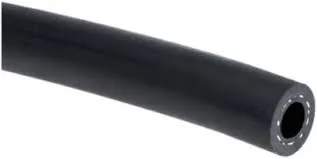engine oil coolant lines
12월 . 20, 2024 11:47 Back to list
engine oil coolant lines
Understanding Engine Oil Cooler and Coolant Lines A Vital Component of Engine Efficiency
The engine, often referred to as the heart of any vehicle, operates under intense conditions. Maintaining optimal performance requires effective management of temperature and lubricants within the engine. This is where engine oil cooler and coolant lines play a critical role in ensuring that the engine runs smoothly and efficiently.
What Are Engine Oil Coolers?
An engine oil cooler is a type of heat exchanger that regulates the temperature of engine oil. Like any machine, an internal combustion engine generates heat during operation. Excessive heat can damage engine components, degrade oil quality, and increase wear and tear. The function of the oil cooler is to dissipate heat from the oil, keeping it at an optimal temperature for lubrication and performance.
Engine oil coolers can be air-cooled or liquid-cooled - Air-cooled oil coolers utilize air flow to reduce oil temperature. As temperature rises, air is channeled through the cooler, and heat dissipates into the atmosphere. - Liquid-cooled oil coolers, on the other hand, utilize the vehicle's coolant system to transfer heat. These are generally more effective and are frequently found in high-performance vehicles.
The Role of Coolant Lines
Coolant lines are integral to the cooling system of an engine. These lines transport coolant, typically a mixture of water and antifreeze, from the radiator to the engine and back. As coolant circulates through the engine, it absorbs excess heat, preventing overheating. The heated coolant is then pumped back to the radiator, where it is cooled before circulating again.
In relation to oil coolers, coolant lines connect the oil cooler to the engine’s coolant system. When engine oil passes through the cooler, the heat is transferred to the coolant, facilitating a more efficient cooling process. This synergy between the coolant and oil systems helps maintain optimal temperatures for both fluids.
engine oil coolant lines

Importance of Maintenance
Maintaining engine oil cooler and coolant lines is essential for the longevity and efficiency of a vehicle's engine. Regular checks and maintenance will help identify any leaks, blockages, or weaknesses in the system. Neglecting these components can lead to severe engine damage, costly repairs, and decreased performance.
One common issue is the buildup of sludge or debris in the cooler and coolant lines. This can restrict flow and impede cooling efficiency. Flushing the cooling system periodically helps to prevent this buildup and ensures that both coolant and oil can circulate freely.
Additionally, it’s critical to monitor coolant levels and oil quality. Low coolant levels can cause the engine to run hot, leading to potential overheating, while degraded engine oil can lose its viscosity, reducing its effectiveness as a lubricant.
Signs of Problems
Awareness of warning signs that indicate issues with oil coolers and coolant lines can help prevent significant engine damage. Common signs include - Overheating If the engine temperature gauge frequently spikes or if you notice steam from the engine, it could indicate a coolant leak or a malfunctioning oil cooler. - Oil in Coolant if you discover an oil sheen on the coolant fluid or contamination of the oil, this could suggest a breach between the oil and coolant circuits, potentially leading to severe engine damage. - Poor Performance Unexpected drops in engine performance can be an indication of cooling inefficiency, often linked to oil or coolant line problems.
Conclusion
In conclusion, the engine oil cooler and coolant lines are crucial elements of a vehicle's cooling system. They work hand-in-hand to ensure that the engine operates within a safe temperature range, promoting longevity and performance efficiency. Regular inspection and maintenance of these systems can prevent a host of issues that could lead to expensive repairs and compromised vehicle reliability. Understanding how these components function allows vehicle owners to take proactive steps in maintaining their engines, ensuring a smooth and reliable driving experience.
Latest news
-
Seven-Layer Winding A/C Hose Type C-HEBEI KEMO AUTO PARTS TECHNOLOGY CO., LTD|Low Permeability&High Durability
NewsAug.29,2025
-
Seven-Layer Type C A/C Hose-HEBEI KEMO AUTO PARTS TECHNOLOGY CO., LTD|Automotive Air Conditioning Solutions
NewsAug.29,2025
-
Durable Automotive Fuel Line: Car, Diesel & E85 Hoses
NewsAug.27,2025
-
Automotive Fuel Line & Hose Solutions | E85 & Diesel Ready
NewsAug.26,2025
-
Reliable Automotive Fuel Line | E85 & Diesel Compatible
NewsAug.25,2025
-
Durable Car Heater Hose | Quality Automotive Preheater Pipes
NewsAug.24,2025
